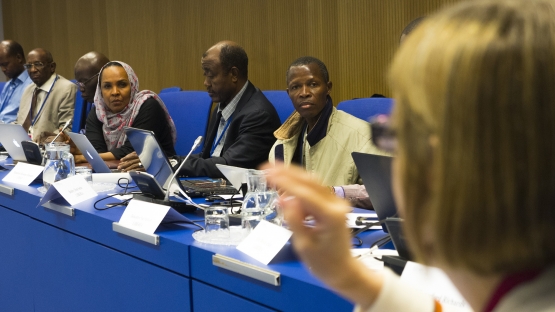Senior representatives from four African IAEA Member States - Chad, Eswatini, Liberia and Sierra Leone - came to Vienna last week to develop planning and funding proposals for the establishment of the first radiotherapy facilities in their countries. The meeting was hosted by the IAEA as part of a phased approach to increase cancer services in low and middle income countries.
“Establishing a country’s first radiotherapy facility is very complex. The IAEA is on hand to support Member States to plan and implement each step so that cancer services have both an immediate and long-lasting beneficial effect for patients,” said Shaukat Abdulrazak, Director for IAEA’s Technical Cooperation regional division for Africa. “Where countries have not yet secured the necessary funding, the bankable documents being developed at this meeting will be indispensable when approaching potential donors and development banks.”
The IAEA has recently conducted comprehensive reviews of cancer control capacities – imPACT Reviews - in the four countries, which highlighted the need to establish radiotherapy facilities as part of a coordinated national approach to address cancer.
The participants, drawn from government ministries and national hospitals, each outlined their cancer control plans and where the country needs to go from there. IAEA experts then worked with each participant to build plans detailing the infrastructure, training and equipment requirements for their national radiotherapy facility. Once complete, these documents can be used to approach potential donors and funding institutions.
“This meeting has helped us progress designs for a highly specialised cancer facility, not a regular medical centre. This underlines the importance of robust planning from the start,” said Winnerford Richards, Assistant Chief Architect at Liberia’s Ministry of Public Works. “I am receiving input from my colleagues at the Ministries of Health and Finance, who agree what cancer services are needed and what should be added to the proposal. We can then translate this into a design for a cancer centre which suits our needs and will benefit patients for years to come.”






